
 Flash News
Flash News
Korça/ 40-year-old man jumps from fifth floor balcony, in critical condition
Croatia restores compulsory military service
Illegal constructions in Theth, Manja demands disciplinary proceedings against prosecutor Elsa Gjeli
Details from the murder of Renis Dobra, the perpetrators came with 2 Range Rover cars from Rrëshen
The Supreme Court left him in prison, Meta addresses the 'Constitution'
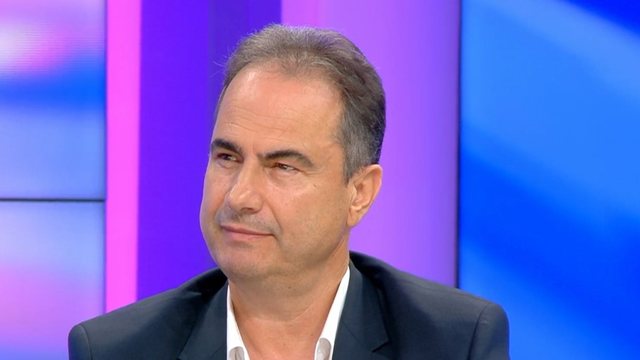
Luciano Boçi
Albania ranks last in terms of media freedom in the region. Nothing is accidental. The alarm sirens have long gone off, but media freedom has nevertheless taken more and more steps back in recent years. Attacks on journalists and media programs critical of the government have been a common refrain in the media-political environment.
Everything has gone in sync with the dismantling of democracy as a whole and the country's ever-increasing descent into a political-criminal autocracy.
Attacks on free speech and free journalists have known several levels. Both the level of legal initiatives, such as the law on defamation, to put handcuffs on speech, as well as the level of dictated censorship commonly applied in the media and among journalists, as well as that of direct threats to the media (especially online) of journalists made by people with administrative and political power, which usually includes the Prime Minister and recently the mayor in question of Tirana.
Without forgetting the system set up as an absurd rivalry of our time between Rama and Veliaj, to buy as many media and journalists as possible.
All this has built in our country the culture of canceling speech, which is considered malignant for the democratic system, but very profitable for the government and its political rule. The cases of Telnisi with life threats, Ambrozias with aggression from Rama, Isait with blackmail emails, Xamas and Hoxha with messages and phone calls from prison funds, are not the only ones.
They join hundreds of other cases accompanied by dismissals, movements, labeling, contempt from superiors, commanding censors or bought owners, cases that have shaped the media, transformed it, and the distance between the word and the truth today is more bigger than ever.
Add here the establishment of censorship institutions that take command from the information directorate near the prime minister's office, which has become omnipotent and dictates many editorial policies in the most visible Albanian media.
Seen in this light, Veliaj's recent reactions to his critical journalists, not yet included in the bag of interests, were not a pure bolt in the sky. It is this normalized cancellation culture that makes him and others treat journalists in the ugliest way possible.
Veliaj had no choice but to do it differently from Rama, who only a few days ago with his arrogance towards journalists had conveyed his harbut mentality to critics across the Adriatic when he was scolded by the head of RAI for his investigative show of the screaming truths of the Albanian reality. Even Rama's political history is simultaneously a history of an almost criminal relationship with the media, a history which has two views.
It has the appearance of a beautiful crime, very well accepted by us as something that has no reason not to happen, because with interests and advertisements it has pocketed a large part of the media and broadcasts. And on the other hand, there is the appearance of a classic crime with blackmail, advertising blocking, fines, personal attacks and intimidation against quality journalists. And no one could have done this double-faced crime better than Veliaj revealed, as he attacked those journalists who were not part of the fulfillment of interests with unacceptable language.
But this culture of speech cancellation is even deeper and has an even more hypocritical appearance. It is not only censorship obtained in many forms as an obstacle to the transmission of the word and self-censorship that have brought down free speech in Albania. Censorship is no longer realized only as an obstacle as it used to be, but it is now also realized as inflation, aiming at the defactoring of truth and reality and bringing a false reality to the public.
And this is the most vile way of destroying freedom of speech. This whole modern scheme of devaluing the truth through the inflation of speech and disinformation is carried out by the servant part of the power media that dominates the media theater today and has two targets: the fight against the political opposition and the glorification of the political rule of the majority.
It is this media theater that draws in its vortex many finances with dubious sources, that distorts information and public communication and conveys false images.
Meanwhile, the solidarity of the journalistic community has shrunk dramatically and the protection against them is almost at zero level, despite the sincere voices of some young journalists passionate about the truth and the word.
Under this lens, the figures who dominate power in Albania today, Rama-Veliaj, are not real figures, but simply media projections that have been served to the public outside of shocking truths.
The progressive discovery of their political truths is unmasking not only propaganda, disinformation, inflation, the pyramid of media-political interests, but also is a corridor of light for the return, in a different political future, of media freedom to bed its natural, as one of the fundamental and guardian pillars of democratic values.
Latest news


Malltezi: SPAK admits, we are in a process that began with Balla's false report
2025-07-10 22:34:16

Si të çliroheni nga bllokimet emocionale me anë të ushtrimeve
2025-07-10 21:57:24

Lala: Veliaj wanted to return as mayor
2025-07-10 21:40:46

VIDEO/ Brawl in Bolivian parliament, deputies physically clash
2025-07-10 21:20:30


Albania experienced one of the longest heat waves of the last decade
2025-07-10 21:01:09

The Government approves new procedures for declaring residence in e-Albania
2025-07-10 20:39:32

Koka: Northerners will not forget Edi Rama's racist operation in Theth
2025-07-10 20:18:24
The 3 zodiac signs that will be most affected by the 'Full Moon' of July 10
2025-07-10 20:04:49
New director of the National Center of Cinematography appointed
2025-07-10 19:51:12
Korça/ 40-year-old man jumps from fifth floor balcony, in critical condition
2025-07-10 19:40:19
'Tired Woman'/ The Syndrome That Affects Thousands of Women Every Day
2025-07-10 19:34:02
Jane Birkin's original Hermès bag sells for $10 million
2025-07-10 19:26:22

Britain-Ukraine agreement signed for 5,000 Thales missiles
2025-07-10 19:00:25
Fire in Zvërnec, flames endanger two hotels
2025-07-10 18:57:19
Croatia restores compulsory military service
2025-07-10 18:39:01
Spahia: The great truth of the strong accusation of the residents of Theth
2025-07-10 18:35:07


The Supreme Court left him in prison, Meta addresses the 'Constitution'
2025-07-10 17:57:21
New punishment with 'new' regulations
2025-07-10 17:54:46
EU translator fired over fears for Zelenskyy's safety
2025-07-10 17:45:37
'You are a policeman, but not God, take my soul', protest for Agon Zejnullahu
2025-07-10 17:41:21


Video/ Rama repeats the scenario, kneels before Meloni again
2025-07-10 16:56:31
He set fire to a plot of olive trees, 50-year-old man arrested in Shijak
2025-07-10 16:46:19

Rubio: US and Russia have exchanged new ideas for Ukraine peace talks
2025-07-10 16:36:20
Death of 27-year-old, Lipjan Police Commander Resigns
2025-07-10 16:21:28
Video/ An apartment burns in Tirana near the New Bazaar
2025-07-10 16:09:36


Jensila lights up the internet with her birthday greetings to Ledri
2025-07-10 15:42:08
They're full of pesticides! List of 12 products we need to be careful of
2025-07-10 15:31:04

Worker falls from scaffolding in Shëngjin, urgently sent to Trauma
2025-07-10 15:11:03
Malltezi: Within one day they seized my accounts, properties and shares
2025-07-10 15:01:23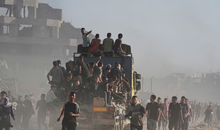
EU: Israel has agreed to more aid to Gaza
2025-07-10 14:55:19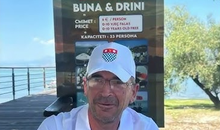


Murder of Reni Dobra, 23-year-old's vehicle pulled from the water
2025-07-10 14:29:23
Trump's tariffs on Brazil raise coffee prices
2025-07-10 14:16:07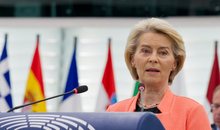
Ursula von der Leyen survives no-confidence vote
2025-07-10 14:04:27

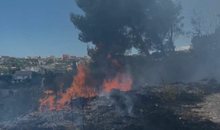
Fire in Lezha, flames near electrical substation
2025-07-10 13:32:24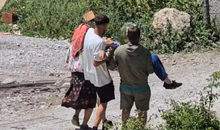
Residents clash with police in Theth, a woman faints
2025-07-10 13:24:38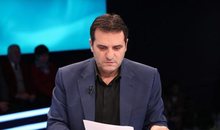
"Rama and Xanun"
2025-07-10 13:15:46

Zodiac signs most likely to get divorced in July 2025
2025-07-10 12:45:51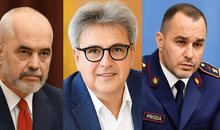
A scapegoat for an illegitimate Republic
2025-07-10 12:35:02
"He has devastated his own nation"/ Berisha: Rama imprisons his opponents!
2025-07-10 12:26:54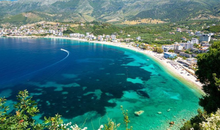

Albanian man injured with knife in Italy
2025-07-10 12:08:55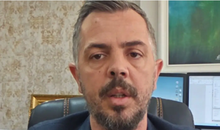
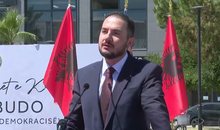


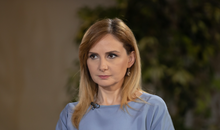

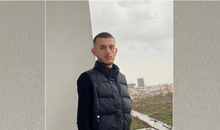
23-year-old in Mat drowned with rope, 4 suspects are being held
2025-07-10 10:58:53
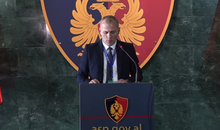
After the dismissals, the new director of the Shkodra Police is appointed
2025-07-10 10:30:10
BIRN: Rama's action for public spaces, a repeated spectacle
2025-07-10 10:29:11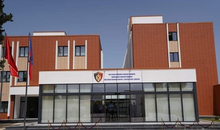
Action in Theth, Shkodra Police leaders dismissed
2025-07-10 10:16:28
Fatal accident on the Tirana-Durres highway
2025-07-10 10:01:58
The incinerator does not exist, but the government continues to increase funds
2025-07-10 09:51:45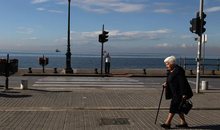
Albania is aging at a rapid pace! 30% of the population is over 60 years old
2025-07-10 09:46:23
End of an era, Modric says 'goodbye' to Real Madrid
2025-07-10 09:36:09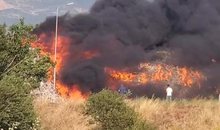
Mount Dukat has been on fire for 6 days, residents request air intervention
2025-07-10 09:27:24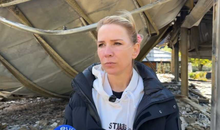

"Poverty on the rise"/ DW: Many people in Germany are not getting paid
2025-07-10 09:08:06
Horoscope, what do the stars have in store for you today?
2025-07-10 08:51:59

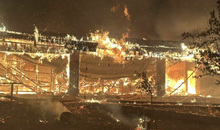
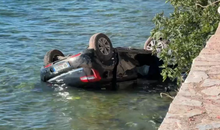

The scorching heat returns, the thermometer climbs to 40°C
2025-07-10 07:58:52
Morning Post/ In 2 lines: What mattered yesterday in Albania
2025-07-10 07:46:35
Tourist operator in Theth: They are demolishing our houses without warning
2025-07-09 22:54:57

Trump and Israeli commander warn: Gaza ceasefire could be near
2025-07-09 22:13:21
Fire in Elbasan Landfill, pedagogue: It is a cancer and environmental crime
2025-07-09 21:54:47


Dangerous summer, number of snake bites increases
2025-07-09 21:22:13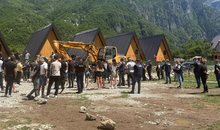
Berisha appeals again: Stop state terror against the residents of Theth!
2025-07-09 21:15:36
'Kissing disease' virus linked to several forms of cancer
2025-07-09 21:04:44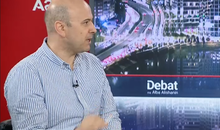
Malltezi confesses after release: Justice has become a political weapon
2025-07-09 20:51:48
Vokshi: Albania's EU integration has stalled due to lack of free elections
2025-07-09 20:37:21
